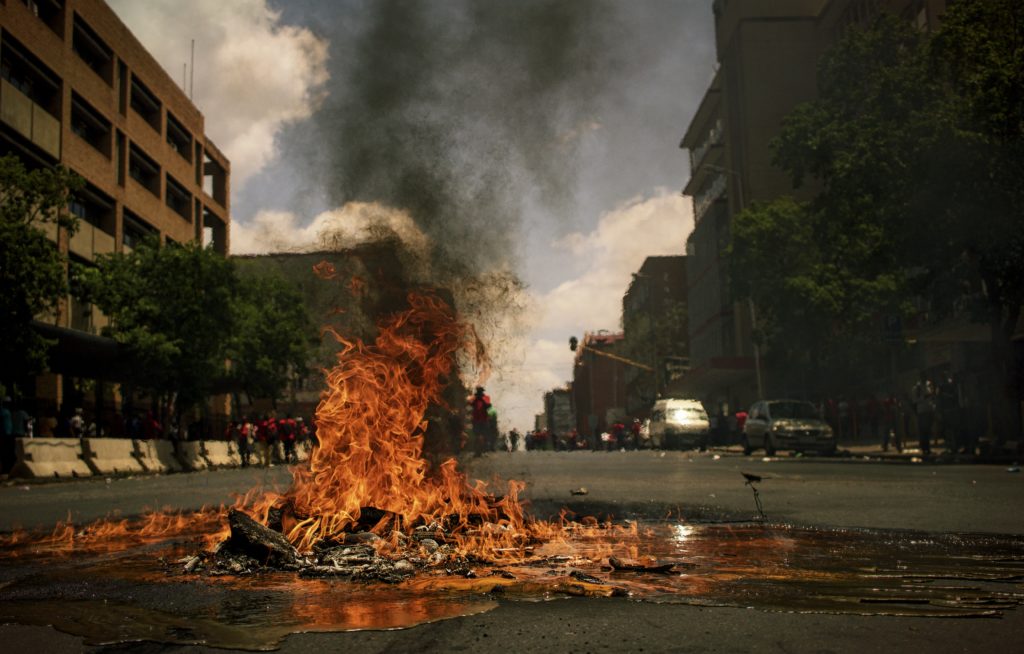What is your reaction when you see the artwork ‘holy cow’ (click holy cow to see the image)? As a Christian, how does it make you feel? The artist responsible for the ‘holy cow’ says that he recognises his work is controversial but argues that banning such artwork would entail the end of dialogue (De Standaard, 28th October 2020). The question is how beneficial such works are in the pursuit of dialogue?
Holy Symbols
For Christians the cross is a sacred symbol. The cross itself is not sacred, rather it becomes sacred through the meaning and value given to it by those for whom it symbolises their own freedom, forgiveness, and faith.
For Muslims Muhammad has a similar sacred symbolism. Although Muslims are quick to emphasise the humanity of Muhammad, he is regarded by believers as the Muslim par excellence, the example for them to follow. In this way Muhammad embodies Islam. It doesn’t take much empathy to see that any cartoon mocking Muhammad would therefore be perceived as an insult.[1]
Different reactions
I could end the comparison here, and merely state the point that both Christians and Muslims have certain religious sensitivities, which society at large needs to acknowledge if it wants to foster dialogue and respect between those who consider themselves religious and those who do not. It is interesting, however, to take it further and compare the reactions from the different religious communities. The ‘holy cow’ upset a lot of people within the village where it was being exhibited and resulted in acts of vandalism by 6 ‘ultra-Catholics’. The various cartoons of Muhammad published in the past decade or so have caused a far stronger and more global response, to put it mildly. Protests across the Muslim world, death threats, the attack on the offices of Charlie Hebdo, and most recently the brutal beheading of Samuel Paty. It is easy, and perhaps electorally advantageous, to conclude that the problem somehow lies with Islam, or at least a radical fringe within Islam. For us Christians it is also tempting to follow this logic, forgetting that in our own not so distant past people were readily burnt at the stake on religious grounds.
Why did the 18-year-old Abdoullakh Abouyedovich Anzorov murder Samuel Paty? It is imperative that answers are found to this question. It is not good enough to answer ‘because he was a Muslim’ for that would mean that my good friend, Hasan, who I know as an upright and honest man, has suddenly become a cold-blooded killer. No, we will need to do better than that.
Ministers of reconciliation
I am not writing this article because I pretend to have the answers. I am writing this article because forces are at work to polarise and divide our society, our communities, and our families. As Christians we are called to be ministers of reconciliation. Sin divides people from God and from each other. Our calling is to point people to Christ, to invite people to lose themselves in Him and so to find in Him a new identity, a heavenly citizenship that transcends cultural differences whilst celebrating God-given diversity.
So how can you and I be ministers of reconciliation during this time of increasing polarisation? Two words: pray and listen.
Pray and listen
The church is called to intercede on behalf of a world, hurting and broken by the sin of its inhabitants. Let us pray that justice will flow like water and righteousness like a never-failing stream. Let us pray that people will love to do right for their neighbour, whoever they are. Let us pray that our leaders will rule with wisdom and justice (see Psalm 72).
And then let us listen to our Muslim neighbours. We do not always have to agree with them but let us at least listen to their feelings of frustration. The man who struggles to find work because of his Arabic name. The teenage girl who suddenly loses her friends because she has decided to start wearing a headscarf. As they wrestle with how to live as a religious minority in a secular country may they find in us Christians a sympathetic companion, who understands their fears and concerns.
At the same time let us also listen to those who fear these same Muslim neighbours. Emotions must be acknowledged before they can be dealt with.
Perhaps through prayer and listening we can be bridgebuilders and peacemakers in our society, providing an alternative to the rhetoric of polarisation? Perhaps through our response we will be ministers of reconciliation, pointing to the One who came and died for us on that holy cross so that we could be reconciled with Him and with each other?
– David Delameillieure
[1] In fact, any depiction of Muhammad is regarded as defamatory.

